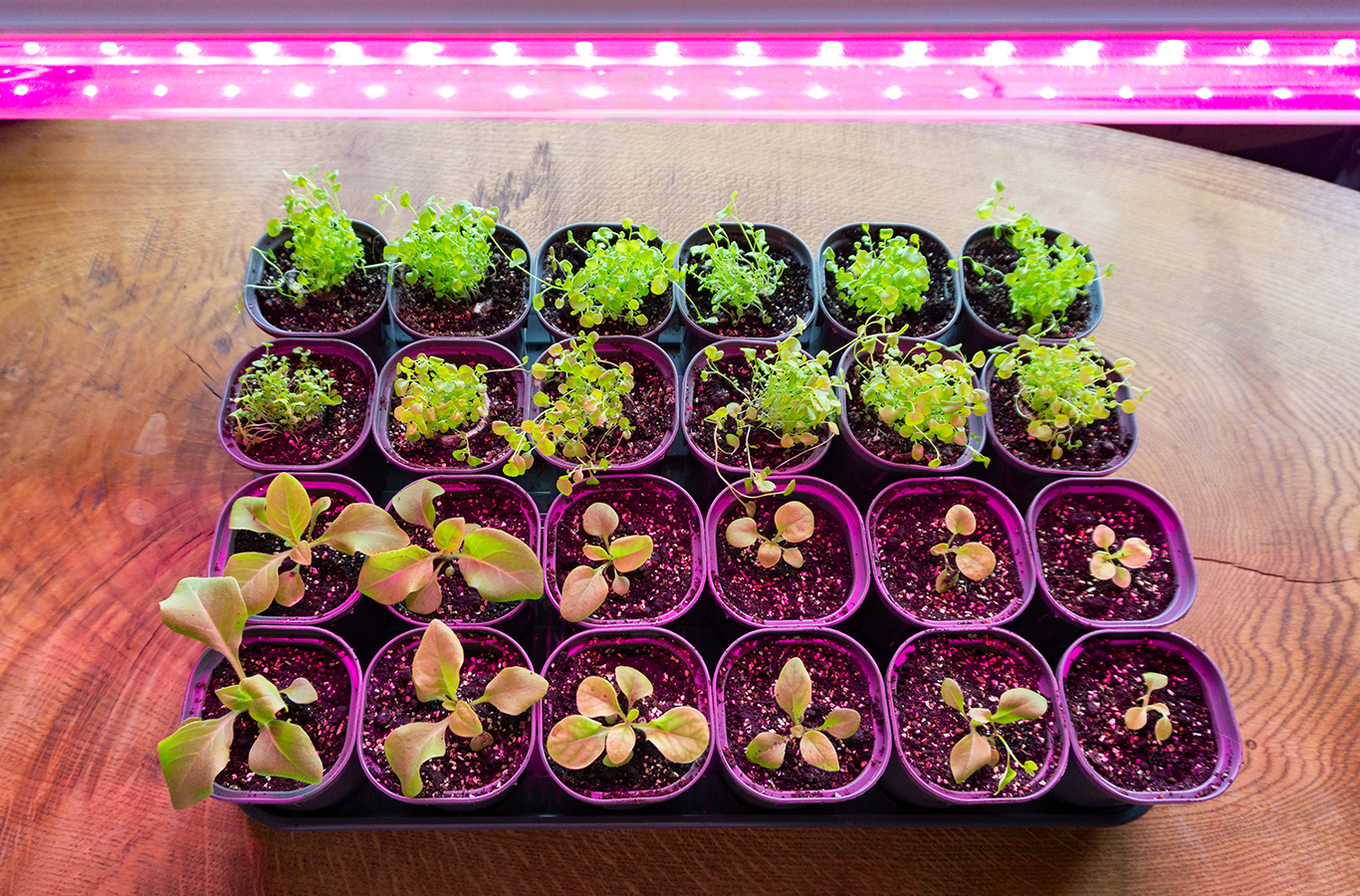Innovative control system lights the way for energy-efficient horticulture
Part funded by
Delivered by
Supported by
Qudos Group
Electrical contractor Qudos Energy had been successfully installing lighting systems across the horticultural sector for years, but, keen to develop an optimised, energy-efficient system, they approached the Aura Innovation Centre (AIC) for support.

THE CHALLENGE
PROJECT PARTNERS:
![]()

Evidencing the potential for mid-power LEDs in horticultural lighting systems.
The horticultural industry is growing rapidly, and innovations such as vertical farming – in which plants are grown not just indoors but also on vertically stacked trays – are becoming increasingly popular. Using far less land and water than traditional farming, non-weather-dependent approaches including glasshouses and vertical farming take seasonality out of the equation and can have a lower carbon impact in comparison to shipping foods around the world.
Mark Raper, Managing Director of Qudos Energy, wanted to help more of his customers benefit from innovations in energy efficiency and get the best growing results. From experience, he knew that horticultural light systems using high-power LEDs wasted energy, creating unnecessary heat and emitting light at wavelengths not necessarily optimal for particular stages of crop growth.
“The primary question was could lower-power LEDs do the job,” says AIC Innovation Manager Anthony Harford, “and if they could, where exactly is the optimum mid-power level at which you can get the maximum out of the plants for the minimum energy expenditure?”
THE SOLUTION
LEAD ACADEMIC/RESEARCHER
Dr Chris Walton, Lecturer
Department of Physics
and Mathematics
Dr Emanuele Verrelli, Lecturer
Department of Physics
and Mathematics
PROJECT FUNDER:
![]()
Improving crop growth and extending growing seasons
Anthony took this challenge to Dr Chris Walton and Dr Emanuele Verrelli who have a shared interest in optical physics and electronic devices. Dr Verrelli initially designed and built a series of small-scale proof-of-concept ‘light engine’ demonstrators and then designed a full-scale prototype (based on a novel modular Printed Circuit Board (PCB) approach) that translated Mark’s vision into reality. Tests conducted with the help of his students successfully demonstrated the capacity of the light engines to improve crop growth and extend
growing seasons.
“Dr Verrelli looked at the challenge in a totally different way than I had – and pulled a couple of rabbits out of the hat as a result,” says Mark. “Looking at LED datasheets and extrapolating from the maths and physics, he derived insights into the numbers of LEDs needed and their different colours that were pretty groundbreaking.” Dr Walton also highlights the importance of defining the crop-specific light ‘recipes’ in creating low-carbon programmable light sources.
These insights have resulted in the development of a low voltage, fully controllable light engine which recreates natural sunlight, delivering the right conditions for optimal crop growth. The PCB boards were fabricated and assembled in the AIC’s InventX innovation space.
THE RESULT
Qudos Energy intends to take its light engine to market
Qudos Energy intends to take its light engine to market with wifi-enabled control to reduce the problem of cabling. The new system will give the business a first-mover advantage in a worldwide horticulture lighting industry projected to grow to $6 Billion by 2025*. For the UK, this could mean new job opportunities in the low-carbon food supply chain and greater food security.
Mark Raper is convinced of the system’s potential – and one recent phone call sums up why: “A strawberry grower called about polytunnels he is putting up as a way out of relying on the flooded summer market when prices are driven down” he said. “He is prepared to make a major investment in innovative technology to be able to sell a premium product all year round.”
*www.researchandmarkets.com/reports/5205798/global-horticulture-lighting-market-with-covid-19

